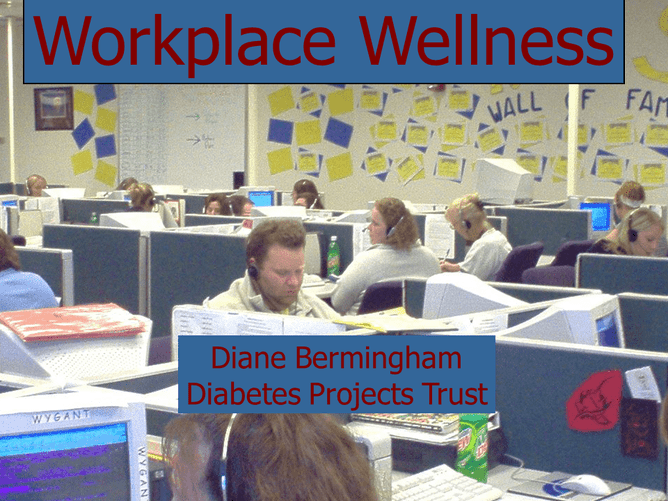Presentation taken to the NZSSD conference about the DPT Healthy Workplaces programme funded by Ministry of Health. Diane Bermingham, co-ordinator for the programme delivered this to good interest. Key observations made in the presentation included that chronic disease such as diabetes, cardiovascular disease and asthma far exceeds accidents as the cause of reduced productivity. That addressing diet, physical activity, and smoking has the potential to reduce the rates of chronic disease. Also noted was that 60% waking hours were spent at work, 1-2 meals eaten at work, more time spent with colleagues than family, and workplaces allowed the possibility of targeting education to high numbers of men.
Evidence around the efficacy of the DPT Healthy workplace programme included experience in workplaces of better uptake of subsidised gym membership, reports of stopping drinking fizzy drinks, reduced take aways, walking groups started and workplaces that changed from dark blue to light blue milk


